Your career in addiction recovery support offers unprecedented opportunities in a rapidly expanding $14.94 billion industry. You'll find diverse roles from peer specialist to digital platform coordinator, with certification pathways requiring 35-80 hours of training. Whether you're drawn to direct client support or technology-driven solutions, you'll need a high school diploma and often personal recovery experience. The field's 5.8% annual growth rate and emerging digital platforms create exciting paths to investigate.
 The addiction recovery field stands at a pivotal moment of unprecedented growth and opportunity. You're entering an industry projected to reach $14.94 billion by 2032, with a secure 5.8% compound annual growth rate that signals strong career stability and advancement potential. This expansion is driving multi-disciplinary collaboration across healthcare sectors, creating diverse roles in both traditional and innovative treatment settings. The increasing need for addiction professionals is particularly evident in substance abuse disorders, which show rising prevalence worldwide. The field anticipates 77,500 job openings annually over the next decade. Innovative treatment methods now include virtual recovery platforms that enable professionals to deliver care remotely. You'll find emerging research frontiers transforming care delivery through digital therapeutics, trauma-informed approaches, and tech-driven solutions. The field's evolution includes significant insurance coverage improvements and heightened public awareness campaigns, reducing treatment barriers. Whether you're interested in direct patient care, program development, or specialized treatment modalities, the industry's growth trajectory promises abundant opportunities for meaningful career development.
The addiction recovery field stands at a pivotal moment of unprecedented growth and opportunity. You're entering an industry projected to reach $14.94 billion by 2032, with a secure 5.8% compound annual growth rate that signals strong career stability and advancement potential. This expansion is driving multi-disciplinary collaboration across healthcare sectors, creating diverse roles in both traditional and innovative treatment settings. The increasing need for addiction professionals is particularly evident in substance abuse disorders, which show rising prevalence worldwide. The field anticipates 77,500 job openings annually over the next decade. Innovative treatment methods now include virtual recovery platforms that enable professionals to deliver care remotely. You'll find emerging research frontiers transforming care delivery through digital therapeutics, trauma-informed approaches, and tech-driven solutions. The field's evolution includes significant insurance coverage improvements and heightened public awareness campaigns, reducing treatment barriers. Whether you're interested in direct patient care, program development, or specialized treatment modalities, the industry's growth trajectory promises abundant opportunities for meaningful career development.
 Within today's expanding addiction recovery field, professionals can pursue diverse specialized roles that match their skills and lived experiences. From peer support specialists providing direct mentorship to program directors managing large-scale initiatives, these positions focus on delivering culturally responsive interventions through community-based partnerships. Peer specialists draw credibility and effectiveness from their own lived recovery experience while maintaining active engagement in their personal recovery journey. Employment opportunities are expected to see much faster growth through 2033, particularly for substance abuse counselors. Research shows that specialists effectively conduct structured interventions focused on health education and care coordination while engaging in community outreach.
Within today's expanding addiction recovery field, professionals can pursue diverse specialized roles that match their skills and lived experiences. From peer support specialists providing direct mentorship to program directors managing large-scale initiatives, these positions focus on delivering culturally responsive interventions through community-based partnerships. Peer specialists draw credibility and effectiveness from their own lived recovery experience while maintaining active engagement in their personal recovery journey. Employment opportunities are expected to see much faster growth through 2033, particularly for substance abuse counselors. Research shows that specialists effectively conduct structured interventions focused on health education and care coordination while engaging in community outreach.
 To establish a successful private addiction recovery consulting practice, you'll need both physical infrastructure (dedicated office space or virtual meeting setup) and digital systems for scheduling, billing, and record-keeping. Your revenue streams should diversify across individual counseling, group workshops, family support services, and potentially online courses or educational materials. You can strengthen your financial foundation by developing relationships with treatment centers for referrals while maintaining a mix of self-pay clients and insurance-based payments.
To establish a successful private addiction recovery consulting practice, you'll need both physical infrastructure (dedicated office space or virtual meeting setup) and digital systems for scheduling, billing, and record-keeping. Your revenue streams should diversify across individual counseling, group workshops, family support services, and potentially online courses or educational materials. You can strengthen your financial foundation by developing relationships with treatment centers for referrals while maintaining a mix of self-pay clients and insurance-based payments.
The Growing Demand for Recovery Professionals

Essential Qualifications and Certification Pathways
Aspiring recovery professionals face several structured pathways to certification, each designed to validate their expertise and commitment to the field. You'll need to meet core prerequisites, including a high school diploma, personal recovery experience, and being at least 18 years old. Recovery duration requirements vary by program, with some mandating a minimum one-year period. A key requirement is being willing to self-disclose your personal recovery journey to help others. The certification process typically involves extensive training, ranging from 35 to 80 hours depending on the pathway you choose. One recognized pathway is completing CCAR certification, which requires 60 hours of recovery-focused education. You'll complete coursework in ethics, advocacy, and recovery coaching fundamentals. Those pursuing CPRC certification must complete 500 supervised hours of professional recovery support work. Some programs, like PRSS, are linked to state service contracting requirements, while others focus on specific competencies such as harm reduction and wellness education. Each pathway includes evaluation processes through exams, interviews, or reference checks to verify your qualifications and recovery route.Specialized Roles in Recovery Support Services

- Clinical support professionals collaborate with treatment teams to provide comprehensive care while addressing co-occurring conditions and coordinating crisis response services
- Family recovery specialists implement trauma-informed approaches and create culturally-specific support systems for loved ones traversing the recovery path
- Access and outreach workers engage marginalized populations through mobile services, connecting clients with harm reduction strategies and essential treatment resources
Technology and Digital Treatment Platforms
As you investigate career opportunities in addiction recovery support, you'll find that virtual recovery networks have transformed how professionals deliver care through integrated telehealth platforms and digital communities. Many treatment programs now incorporate evidence-based CBT tools that are accessible anytime and anywhere. You can utilize digital assessment tools to track client progress, analyze treatment effectiveness, and make data-driven decisions that improve recovery outcomes. Modern recovery support professionals can leverage AI-powered systems to streamline administrative tasks like scheduling and documentation. Support specialists can now host virtual support meetings that foster community connections while maintaining anonymity. These technological advances create new roles for recovery support specialists who'll need to master both traditional counseling skills and digital platforms to provide extensive, accessible care.Virtual Recovery Support Networks
Three major technological advances have revolutionized addiction recovery support: telehealth platforms, AI-driven personalization, and wearable monitoring devices. You'll find integrative wellness programs that combine virtual counseling, group therapy, and medication management through secure platforms. These on-demand recovery resources remove traditional barriers like transportation and stigma while offering global accessibility. The expansion of hybrid recovery models has enabled providers to blend virtual care with in-home services for comprehensive treatment support. Studies show that daily social media usage by nearly 80% of individuals makes digital platforms an essential channel for modern recovery support. With approximately 36.7% of people globally struggling with internet addiction, digital treatment platforms have become increasingly vital.- Virtual platforms enable 24/7 access to counseling, support groups, and crisis intervention
- AI algorithms analyze your behavioral patterns to create tailored treatment plans and forecast relapse risks
- Wearable devices track crucial signs and trigger real-time interventions during high-stress moments
Digital Assessment Tools
Modern digital assessment tools have transformed the terrain of addiction recovery through sophisticated AI-driven analytics and integrated monitoring systems. As you investigate career opportunities in this field, you'll need to understand therapeutic technology integration, including AI-powered risk assessments and predictive analytics that identify potential relapses before they occur. Digital footprint analysis has become vital in evaluating clients' technology use patterns across social media, gaming, and smartphone activities. You'll work with specialized platforms that combine traditional assessment methods like CRAFFT and BSTAD with real-time behavioral monitoring. These tools enable you to track stress triggers, craving episodes, and treatment responses while maintaining standardized documentation across clinical environments. The integration of these digital solutions with EHR systems streamlines workflow and boosts treatment effectiveness through data-driven decision-making.Telehealth Platform Integration
The transformative power of telehealth platforms has revolutionized addiction treatment delivery, creating unprecedented opportunities for recovery professionals. You'll need to master secure patient data management and digital onboarding protocols to effectively integrate virtual care solutions. Today's platforms combine AI-driven monitoring tools with traditional therapeutic approaches, enabling you to reach more clients while maintaining quality care standards.- Implement hybrid care models that blend virtual sessions with strategic in-person touchpoints, maximizing treatment effectiveness and client retention
- Deploy wearable health monitoring systems to track client progress and identify potential relapse triggers in real-time
- Utilize AI prediction tools to develop personalized treatment plans and proactive intervention strategies
Building a Career in Peer Support Services
Building a meaningful career in peer support services requires a unique combination of personal recovery experience and professional development. You'll need at least nine years of recovery experience, plus state-specific certifications like CPRS or CPSS to establish your credibility in the field. Your daily work will focus primarily on emotional support (43%), with supplementary time spent on community building, resource education, and practical assistance. Role advancement opportunities exist in program administration and policy development, while community outreach initiatives remain the most common work setting. You'll need to master boundary management, cultural humility, and coping strategy coaching to succeed. Despite challenges like pay disparities and varying role standardization, the field offers promising growth potential due to increasing demand and expanding leadership pathways in addiction recovery support.Private Practice and Independent Consulting

Building Your Practice Infrastructure
Successfully establishing a private practice or consulting business in addiction recovery requires careful attention to regulatory compliance, business structure, and service scope limitations. Before launching your practice, you'll need to understand state-specific compliance requirements and operational oversight regulations that govern addiction support services.- For California practitioners, you'll need proper licensing (LMFT, LCSW, or LPCC) from BBS and must maintain HIPAA/HITRUST compliance for client records
- If you're in Minnesota, note that recovery peers must move from contractor to employee status by January 2025
- Consider your business structure carefully; options include sole proprietorship, LLC, or corporation, each with distinct liability implications
Essential Consulting Revenue Streams
Once you've established your practice infrastructure, generating sustainable revenue requires a diversified approach to consulting services. As a strategic business consultant in addiction recovery, you'll want to focus on revenue diversification strategies across multiple service lines. You can generate income by helping treatment centers optimize their insurance billing processes, secure government funding through grant writing, and develop strategic partnerships. Your expertise in regulatory compliance and operational efficiency will prove valuable as facilities seek to expand their services and maintain standards. Consider offering specialized consulting in areas like telehealth integration, evidence-based programming implementation, and dual diagnosis care development. Furthermore, you can create revenue streams by assisting facilities with marketing strategies, lead generation, and referral network development to increase their client base.Workplace Recovery Program Development
While developing workplace recovery programs remains a complex challenge, understanding the core components and implementation barriers is essential for creating effective support systems. You'll need to focus on program evaluation metrics that measure both employee wellness outcomes and organizational benefits, while advancing policy advocacy initiatives to secure sustainable funding and reduce stigma.- Partner with health systems and community organizations to establish thorough support networks that address both prevention and recovery needs
- Implement evidence-based training tools from NIEHS to tackle work-related substance use root causes and create non-punitive workplace policies
- Design cost-effective wellness integration strategies that combine injury prevention with mental health support, showing clear ROI through improved retention






